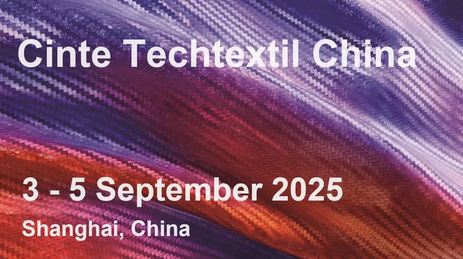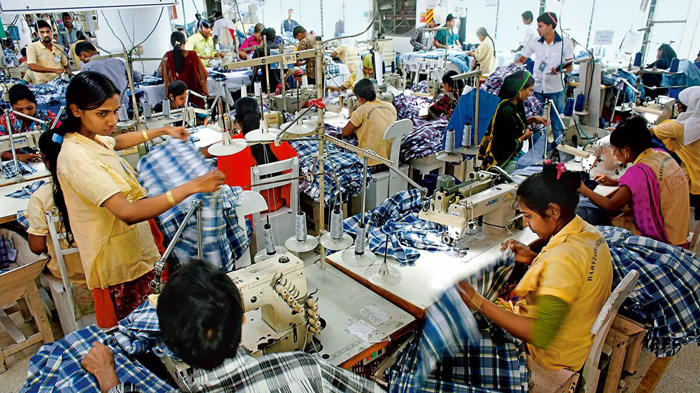
At the 64th Annual General Meeting of the Textile Machinery Manufacturers' Association (TMMA) on September 19, 2024, Chairman M Sankar delivered a comprehensive analysis of the challenges and opportunities facing the Indian Textile Engineering Industry (TEI). The event, attended by key figures in the textile sector, including Chief Guest Rakesh Mehra, Chairman of the Confederation of Indian Textile Industry (CITI), underscored the importance of technological advancement and collaboration for the TEI's future.
Global challenges impacting growth
Sankar opened his address by highlighting the impact of global economic challenges on the TEI. Geopolitical tensions and weakened consumer demand have significantly hampered the industry. While inflation has eased globally, export-oriented economies have faced slowdowns, leading to inventory buildups. India and China, with their large domestic markets, have been somewhat insulated from the worst of these challenges. However, the Indian TEI has experienced declining export demand and slowed growth, with capacity utilization falling to 84 per cent. Notably, exports of textile machinery declined by 14 per cent in FY 2023-24 compared to the previous year, exacerbating the sector's difficulties.
Domestic market resilience
Despite these global headwinds, India’s domestic market remains robust. The economy grew by 8.2 per cent in FY 2023-24, with inflation staying within the targeted range, and the fiscal deficit reduced to 5.6 per cent from 6.4 per cent. Sankar attributed this success to improved tax compliance, economic activity, and fiscal discipline. These positive factors have cushioned the TEI from more severe global pressures. Segments such as spinning, processing, and spare parts performed well, although overall industry turnover suffered in the latter half of the fiscal year.
However, Sankar pointed out that the growth within the TEI has been uneven. While some sectors have seen positive developments, the broader industry continues to face significant challenges, particularly in light of the volatile global economic environment.
The push for technological modernization
A major focus of Sankar’s speech was the urgent need for modernization within the TEI. He called for closer collaboration between the textile machinery manufacturers and their user industries, stressing that adopting cutting-edge technologies and investing in research and development (R&D) are essential to staying competitive globally.
Sankar noted that countries like China and European nations have surged ahead in technological innovation, largely due to strong government support. In contrast, India’s TEI has lagged, hampered by limited financial and infrastructural backing. Sankar called for increased government involvement in fostering innovation, particularly through financial investments in R&D and technology. Without this strategic support, India risks falling further behind its international competitors.
Navigating cyclical demand
Another significant challenge highlighted by Sankar is the cyclical nature of demand in the TEI. He noted that the industry often experiences periods of intense activity followed by downturns, creating financial instability and operational inefficiencies. To address this, Sankar suggested that machinery orders be spread more evenly throughout the year, which would help both machinery manufacturers and textile companies by reducing costs and ensuring more consistent production.
Despite these challenges, Sankar expressed optimism about the TEI's future. He highlighted the Indian government’s initiatives, such as the Production Linked Incentive (PLI) Scheme and the PM MITRA Scheme, which aim to bolster the textile and apparel industry. These initiatives, if properly supported, could reduce India’s dependence on imported machinery and help the TEI close the technological gap with global leaders in areas like weaving and processing.
Recognizing excellence in exports and innovation
The AGM also celebrated excellence within the industry through the Export and R&D Awards. Rieter India Pvt Ltd won the Apex Export Award for an overall turnover of Rs 2273 crore, including Rs 747 crore in exports. Other notable winners included Saurer Textile Solutions Pvt Ltd and Lakshmi Machines Works Ltd, which excelled in the machinery sector, and Premier Evolvics Pvt Ltd, which led the textile testing sector. Kirloskar Toyota Textile Machinery was recognized for its achievements in spinning machinery, while Lakshmi Machines Works Ltd also received recognition for its innovation in R&D with its Ring Frame Auto Piecer and Draw Frame LDF3 2S.
A call for collaboration and innovation
In his closing remarks, Sankar emphasized the importance of collaboration between the TEI and the broader textile industry. He reiterated that government support is crucial for fostering innovation and enabling India’s TEI to remain competitive on the global stage. Sankar urged stakeholders to embrace modernization and technological advancements, which will be key to securing India’s position as a global leader in textile machinery manufacturing.
The future of India’s TEI, Sankar concluded, hinges on the industry’s ability to innovate, collaborate, and capitalize on government initiatives. With the right support and a commitment to modernization, the TEI can emerge stronger, more competitive, and better equipped to meet the evolving demands of both domestic and international markets.












